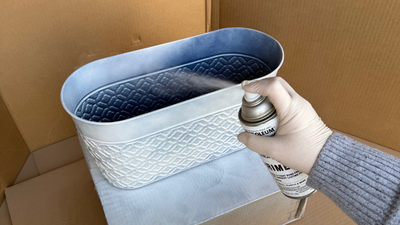How to Care for Thrifted Clothes: Removing Smells

Thrifting clothes is a great way to reduce your impact on the environment, buy great clothes for less, and build a fantastic unique wardrobe. If you’re scent-sensitive, allergic to artificial fragrances, or just don’t like the lingering smell, we’ve got tips for getting your thrifted clothes ready for you to wear.
First, knowing what type of scent you’re trying to remove will make a big difference to which of our listed cleaning techniques will work best.
Identify the scent
You may not know exactly the source of the scent, but the stronger and more permeating, the more likely it is to have an oil or chemical base. This is why perfumes are so strong.
Expensive perfumes and air fresheners often have strong oils as a base so they last longer, but this is also what makes them difficult to remove. The oils can seep into walls, clothing fibers, and even layer on skin.
Cheaper scented products often use chemicals like formaldehyde and ethanol to preserve fragrances and artificially spread their smell molecules farther. These chemicals can negatively impact your health overall, so even if the perfume smell is faded and you aren’t scent sensitive, it’s still best to remove it anyway.
Household smells such as pets and tobacco usually have oil bases, so you’ll need to treat them similarly to expensive perfumes. Fortunately, pet smells tend to come out easier; tobacco products are typically mixed with chemicals, though, so they’ll likely need more soaking time (more on that below).
If you’re shopping at a thrift store with screening standards like Deseret Industries, items with powerful smells are weeded out and recycled, so you shouldn’t come across anything awful. But for remaining, unwanted scents, we've included the most natural and environmentally friendly cleaning tips below so you can have great clothes that won’t make you pinch your nose.

Best ways to get smells out of your thrifted clothes
1. Wash the clothes
This one seems obvious, but you should always wash purchased clothes before you wear them, whether they’re new or thrifted. This will remove most common odors, and whatever still smells afterward can get the more aggressive treatments below.
2. Try vinegar
White vinegar is made of acetic acid, which naturally deodorizes and, bonus, kills bacteria, so it’s great for blasting both natural body odors and harmful chemical and fragrance smells.
Add a cup of vinegar to your wash and give it a go. If you find that’s not enough, you can soak the clothes in a small tub with a more concentrated mixture of white vinegar and water. After a few days, they should be ready for a quick rinse, airing outside, and then eventual wear.
3. Lemon juice
Fresh lemons work similarly to vinegar when it comes to getting rid of unwanted smells. Lemon has acid in it and which makes it a natural emulsifier, so if there are oils leftover from tobacco, perfumes, or animals, the lemon oils will begin to break down the scent molecules trapped there. Plus, lemon is a nice fragrance to begin with.
We suggest soaking unpleasant-smelling clothes in a tub with lemon juice and water (you can combine it with vinegar too, for extra strength), then running the clothes through the wash. Use small plastic tubs to soak your clothes and then pair your rinses or re-washes of soaked clothes with your normal weekly laundry to avoid wasting water.
4. Baking soda
Baking soda is another natural deodorizer that, unlike vinegar and lemon juice, is dry. That comes in handy with fabrics that don’t do well with prolonged soaking or with fabrics that you can’t put through a wash (like upholstery). It’s already powerful all on its own, but you can combine it with vinegar to create an alkaline-and-acid combo that should punch out most smells with enough time, whether it be faded body odor or strong perfume.
5. Rubbing Alcohol
Rubbing Alcohol is a great way of getting scents like perfume off the skin, but it can also be used to remove colognes and other fragrances from a garment. If your clothing item only smells in one place, rubbing alcohol is a particularly great option because you can scrub the spot without having to wash the whole piece.
Rubbing alcohol also doesn’t stain clothes unlike chemicals such as bleach—but beware, if there are strong dyes in the clothes, rubbing alcohol can leach or push them, leaving strange bleached-like spots. We recommend this choice only for light-colored clothes. You might test rubbing alcohol on a tiny spot on an inside seam or hem to make sure it won’t be a problem.
6. Sunshine
When all else fails, sunshine prevails. Sunshine is a natural deodorizer and can even help naturally remove stains from light clothing. Hang your clothes outside in the wind and sunshine for one to five days (depending on how strong the odor is) to get the last of the yuck out.
In fact, for almost all bad-smelling clothes, we suggest airing them to dry instead of using the dryer, even if you think the smell is gone after a good vinegar or lemon soak. The dryer’s heat can revive and spread the original smell molecules if they are not completely gone, but sunshine and wind should get rid of whatever remains.
7. Time
With time, lingering smells will fade, and the clothing you’ve adopted will begin to absorb your household or personal scents. Wind and sunshine speed that process up, but depending on the fabric and the scent, your thrifted clothes might need to air out for a week or more. Make sure you plan time for that process, particularly if you’re dealing with a scent that’s chemically engineered to linger and makes you or others physically ill, like perfumes, air fresheners, and colognes.



